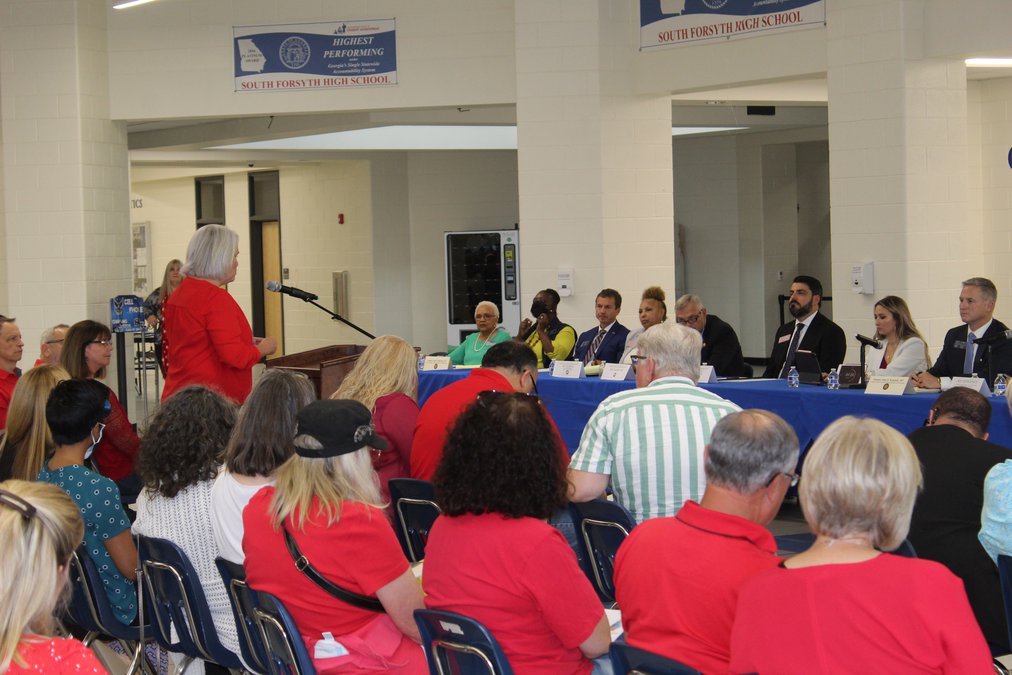Changes are coming to Georgia’s state and federal congressional
lines, and residents of Forsyth County and surrounding areas were able to
express thoughts on the process.
Forsyth County, other residents give feedback during townhall for Georgia’s legislative redistricting


Latest
-
 City of Cumming approves school annexation despite objections by County
City of Cumming approves school annexation despite objections by County -
 NHL commissioner looking over agreement between Forsyth County and The Gathering at South Forsyth
NHL commissioner looking over agreement between Forsyth County and The Gathering at South Forsyth -
 ‘I’ve been so frustrated with the whole situation.’ Forsyth County residents fed up with postal service delays.
‘I’ve been so frustrated with the whole situation.’ Forsyth County residents fed up with postal service delays. -
 Rep. Todd Jones recognized for his work during recent session
Rep. Todd Jones recognized for his work during recent session